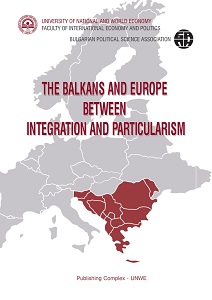“Capture” of the Post-Socialist State as a Challenge to the EU Integration
“Capture” of the Post-Socialist State as a Challenge to the EU Integration
Author(s): Andrey Nonchev
Subject(s): Politics / Political Sciences, Political Theory, Political Sciences, Public Law, Economic policy, Developing nations, Political economy, Politics and law, Politics and society, Methodology and research technology, EU-Approach / EU-Accession / EU-Development
Published by: Университет за национално и световно стопанство (УНСС)
Keywords: state capture; power networks; rational political economic strategies; rule of law; corruption; European integration
Summary/Abstract: Different trajectories of post-socialist societal transformations and their alternativeconceptualizations are discussed. The paper addresses the specific mode of post-socialist societydesignated as "state capture" and its economic, political and social dimensions. The paper offers atheoretical model of the captured state, identifying its differentia specifica and its economic,political and social effects. The interaction between state institutions, political and economicpower networks and their rational strategies to capture the state is identified. The implementationof these strategies involves the formation and operation of politico-economic power networks thatseek to control key public legislative, executive and judiciary institutions and to extract economicand political benefits. The state capture has fundamental political, economic and social consequences that could become serious barriers to deepening European integration and even stimulate disintegration processes.
Book: The Balkans and Europe between Integration and Particularism
- Page Range: 38-46
- Page Count: 9
- Publication Year: 2019
- Language: English
- Content File-PDF

